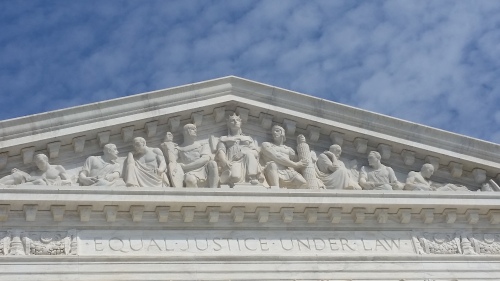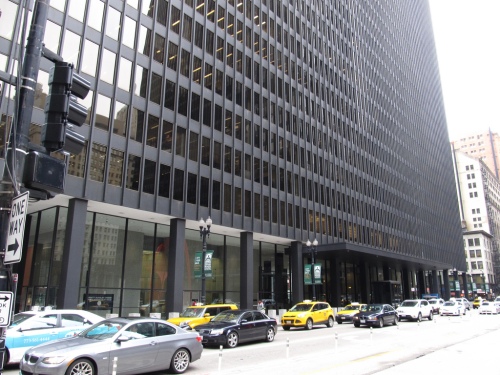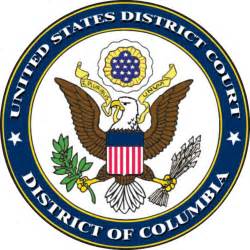
The First Amendment to the U.S. Constitution is colloquially known for establishing the right to free speech, but it actually encompasses several rights, including the freedom of the press, and the right of assemble, demonstrate, and petition your elected representative. Additionally, the religion clauses of the First Amendment guarantee the right to practice your religion without government interference, as well as prohibiting government endorsement or establishment of religion. The myriad rights recognized by the First Amendment have been further fleshed out by the Supreme Court and lower courts. Kavanaugh himself has written several opinions in First Amendment cases. In these opinions, summarized below, Kavanaugh has generally taken an expansive view of First Amendment rights, showing a willingness to strike down regulations that impinge, even slightly, on First Amendment territory.
Freedom of Speech
The First Amendment guarantees the freedom of speech to all Americans. In other words, we cannot be punished by the government for expressing our views. As noted above, Kavanaugh has taken an expansive view of this freedom, particularly as it relates to campaign and communication regulations.
Campaign Regulations
The most recent frontier in free speech cases has involved campaign finance. In its landmark decision in Citizens United v. FEC, the Supreme Court struck down government restrictions on independent expenditures made by corporations and unions in campaigns, ruling that such restrictions were an infringement of the First Amendment.[1] Since then, numerous campaign regulations have been challenged on First Amendment grounds.
In 2016, Kavanaugh decided one such challenge in holding that the Independence Institute, a non-profit organization, should be allowed to proceed in its First Amendment challenge against federal regulations requiring them to disclose their donors.[2] In his majority opinion, Kavanaugh acknowledged that the Supreme Court had upheld disclosure requirements in the past (including in Citizens United) but noted that the Independence Institute was a 501(c)(3) organization, rather than the 501(cv)(4) involved in Citizens United.[3] This distinction, Kavanaugh ruled, was sufficient to allow the case to proceed.[4]
In dissent, Judge Robert Wilkins argued that the First Amendment challenge was precluded by Citizens United, and that the factual distinctions drawn by Kavanaugh were “immaterial.”[5]
Kavanaugh also has the notable distinction of having struck down campaign finance regulations on First Amendment grounds before Citizens United. In Emily’s List v. FEC, Kavanaugh struck down a series of FEC regulations limiting the use of “soft money” by non-profits in election spending.[6] In striking down the regulations, Kavanaugh noted:
“Donations to and spending by a non-profit cannot corrupt a candidate or officeholder, at least in the absence of some McConnell-like evidence establishing such corruption or the appearance thereof.”[7]
Judge Janice Rogers Brown refused to join Kavanaugh’s First Amendment analysis in the case, noting:
“I have grave doubts about the court’s analysis, which bears at most a passing resemblance to the parties’ briefs, and which will profoundly affect campaign finance law in this circuit.”[8]
Communications Regulation
Kavanaugh has also sought to apply the First Amendment in the context of communications regulation. As the D.C. Circuit upheld Federal Communications Commission (FCC) regulations barring exclusive contracts between cable operators and affiliated cable programming networks, Kavanaugh dissented.[9] In his dissent, Kavanaugh argued, as cable networks and operators both engage in protected speech, that the FCC regulations (which are intended to avoid monopolies) implicate First Amendment rights.[10] Applying the First Amendment, Kavanaugh found that a changed competitive marketplace for cable means that the FCC bans no longer further an interest in fair competition and must be struck down.[11]
Press
The First Amendment also protects a free press from both government censorship and excessive regulation or litigation. As such, the Supreme Court has recognized fairly broad protections from journalists against defamation suits (which seek damages for the publication of false information). Kavanaugh reaffirmed this principle in one notable defamation case.[12] In the case, a prisoner filed a defamation action against the Bureau of National Affairs (BNA) for attributing some negative comments during his sentencing hearing to the judge rather than the prosecutor.[13] After the district judge denied BNA’s motion to dismiss, Kavanaugh reversed the ruling on appeal, noting that the First Amendment protected the BNA’s actions as long as they were not made with “actual malice” and that the plaintiff could not make such a showing.[14]
Freedom of Assembly + Petition
In addition to the Freedom of Speech and the Press, the First Amendment encompasses the Freedom of Assembly, or the right of people to come towards to express their ideas collectively. Encompassed within that right is the right to associational freedom: the right to join organizations that are formed around causes you believe in; as well as the right not to join organizations you disagree with. Additionally, the First Amendment includes the right to peacefully petition your elected representatives on issues that are important to you.
Kavanaugh authored a notable opinion discussing the latter right. In We the People Foundation, Inc. v. United States, the plaintiffs submitted “petitions with extensive lists of inquiries” related to questions about the government’s violation of the taxing and war powers clauses.[15] When the government agencies to whom the petitions were addressed failed to respond, the plaintiffs brought suit, alleging two claims: first, that the First Amendment right to petition encompassed a right to a “good faith exchange” between the government and the petitioner; second, that the First Amendment prohibited the government from retaliating against plaintiffs for filing the petition.[16] Kavanaugh wrote for a majority of the D.C. Circuit rejected the claim under the First Amendment, finding that, under the Supreme Court’s holding in Smith v. Arkansas State Highway Employees, there was no “affirmative obligation” under the First Amendment to have the government respond to a petition.[17]
In concurring with the main opinion, Judge Judith Ann Wilson Rogers noted the depth of historical sources that plaintiffs had cited, and suggested that, as such evidence had not presented to the Supreme Court in prior cases, that the outcome of Smith and other precedent may have been different had the record on the right to petition been fully explored.[18]
Freedom of Religion
The Free Exercise Clause of the First Amendment protects the right to worship and believe in accordance with any and no faith. Congress extended the protections of the Free Exercise Clause in the Religious Freedom Restoration Act (RFRA), which required any government action or regulation that substantially burdened a sincerely held religious belief to be narrowly tailored to a compelling governmental interest.
In one notable case, a panel of the D.C. Circuit found that the religious rights of Catholic nonprofits were not violated by the ACA’s “religious accommodation” opt-out from its contraceptive mandate.[22] The full D.C. Circuit then declined to take the case en banc, with Kavanaugh in dissent. In his dissent, Kavanaugh argued that the challenged accommodations substantially burden Catholic non-profits by making them “conduits” to providing contraceptive coverage through an alternative means.[23]
Establishment of Religion
The Establishment Clause of the First Amendment prevents the government from endorsing, establishing, or placing a stamp of approval on one faith or kind of religious service. While Kavanaugh has generally interpreted the other rights in the First Amendment broadly, he has not done so for the Establishment Clause.
In In re Navy Chaplaincy, Kavanaugh rejected an Establishment Clause challenge to the retirement system for Navy Chaplains, which plaintiffs alleged discriminated in favor of Catholic chaplains.[19] Kavanaugh found that the plaintiffs, current and retired non-liturgical Protestant chaplains lacked standing to raise an Establishment Clause claim, finding that being exposed a “message” of preference for Catholic chaplains is insufficient to constitute an injury.[20]
In dissent, Judge Judith Ann Wilson Rogers wrote that Kavanaugh’s opinion “ignores all of this precedent in adopting the novel conception that appellants are not harmed for purposes of standing…”[21]
[1] See Citizens United v. Fed. Election Comm’n, 558 U.S. 310 (2010).
[2] Ind. Institute v. Fed. Election Comm’n, 816 F.3d 113 (D.C. Cir. 2016).
[3] Id. at 117.
[4] Id.
[5] See id. (Wilkins, J., dissenting).
[6] Emily’s List v. Fed. Election Comm’n, 581 F.3d 1, 4 (D.C. Cir. 2009).
[7] See id. at 18 (citations omitted) (emphasis in original).
[8] See id. at 25 (Brown, J., concurring in part).
[9] Cablevision Sys. Corp. v. F.C.C., 597 F.3d 1306, 1315 (D.C. Cir. 2010) (Kavanaugh, J., dissenting).
[10] Id. at 1322.
[11] Id. at 1325.
[12] Kahl v. Bureau of Nat’l Affairs, Inc., 856 F.3d 106 (D.C. Cir.), cert. denied sub nom. Von Kahl v. Bureau of Nat. Affairs, Inc., 138 S. Ct. 366, 199 L. Ed. 2d 269 (2017).
[13] See id. at 110.
[14] Id. at 117-18.
[15] We the People Found., Inc. v. United States, 485 F.3d 140, 141 (D.C. Cir. 2007).
[16] Plaintiffs alleged that the federal government had retaliated by prosecuting plaintiffs who refused to pay federal income taxes out of protest.
[17] See id. at 145.
[18] See id. at 145-48 (Rogers, J., concurring).
[19] In re Navy Chaplaincy, 534 F.3d 756, 758 (D.C. Cir. 2008).
[20] Id. at 764.
[21] Id. at 770-71 (Rogers, J., dissenting).
[22] Priests for Life v. U.S. Dep’t of Health & Human Servs., 772 F.3d 229 (D.C. Cir. 2014).
[23] Priests for Life v. U.S. Dep’t of Health & Human Servs., 808 F.3d 1, 14 (D.C. Cir. 2015) (Kavanaugh, J., dissenting from denial of rehearing en banc).



